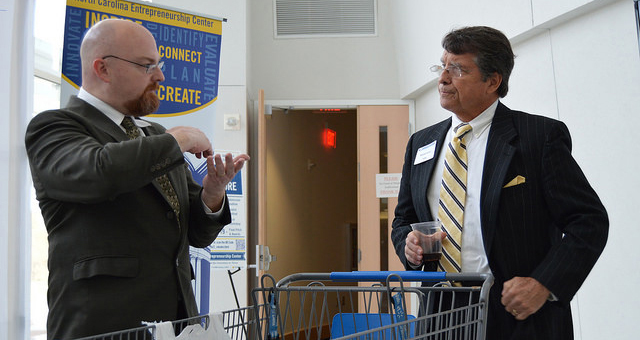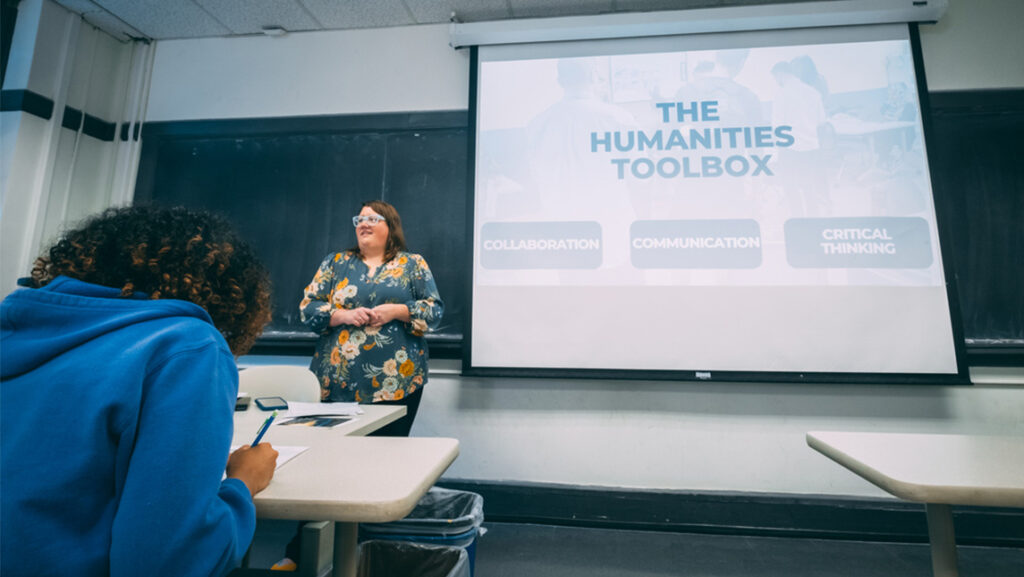
Redacted from Horizons, The UNCG Graduate School Newsletter and Blog
For the fifth consecutive year, the North Carolina Entrepreneurship Center (NCEC) at UNCG held its “2 Minutes to Win It” contest, open to full-time students at UNCG, NCAT, Greensboro College, Guilford College, Bennett College, Elon University, and Guilford Tech students. With four monetary prizes on the line, participants condensed original business ideas into sub-two minute presentations and then pitched those ideas to a panel of judges. The students met in November and Ike Quigley, a Master’s student in computer science at UNCG, took home second place and a $500 prize for the “Super Smart Cart.”
The idea for the Super Smart Cart, which is described as “a revolutionary shopping cart that has scales, scanners, and bags and eliminates the need for a cashier,” began when Ike went shopping for his family. “One day I had filled up my grocery cart with items, and it struck me how inefficient it was for me to wait in line just to unload everything I had put in the cart, so that it could be scanned by the cashier who was going to bag the items and place them back in the cart…I realized that if I could incorporate the bagging and scanning of items into the same step as taking them off the shelf, then I could cut down the time spent shopping significantly.”
Thus, the Super Smart Cart was born.

Using his background in Computer Science, Ike created a prototype of the cart as part of his Capstone project and is currently “fleshing out the software aspects of the system.” To give you an idea of what kind of software he’s referring to, it might be better to just take his word for it: “For the first version, the cart would use bar code scanners for scanning the products as they’re placed in the cart. A future version would make use of RFID (Radio-frequency Identification) tags on consumer products once that technology has become ubiquitous.” Additionally, the cart would be equipped with digital scales “similar to self-checkout aisles,” while making use of NFC (Near Field Communication) technology “to connect to a user’s smart phone.”
Oh, and a microcomputer will “be built into the cart for tracking inventory and prices, and will update itself with the store’s database via BlueTooth.”
If you had a hard time understanding all that, the ultimate goal is far easier to follow… Read complete article at Horizons, The UNCG Graduate School Newsletter and Blog



